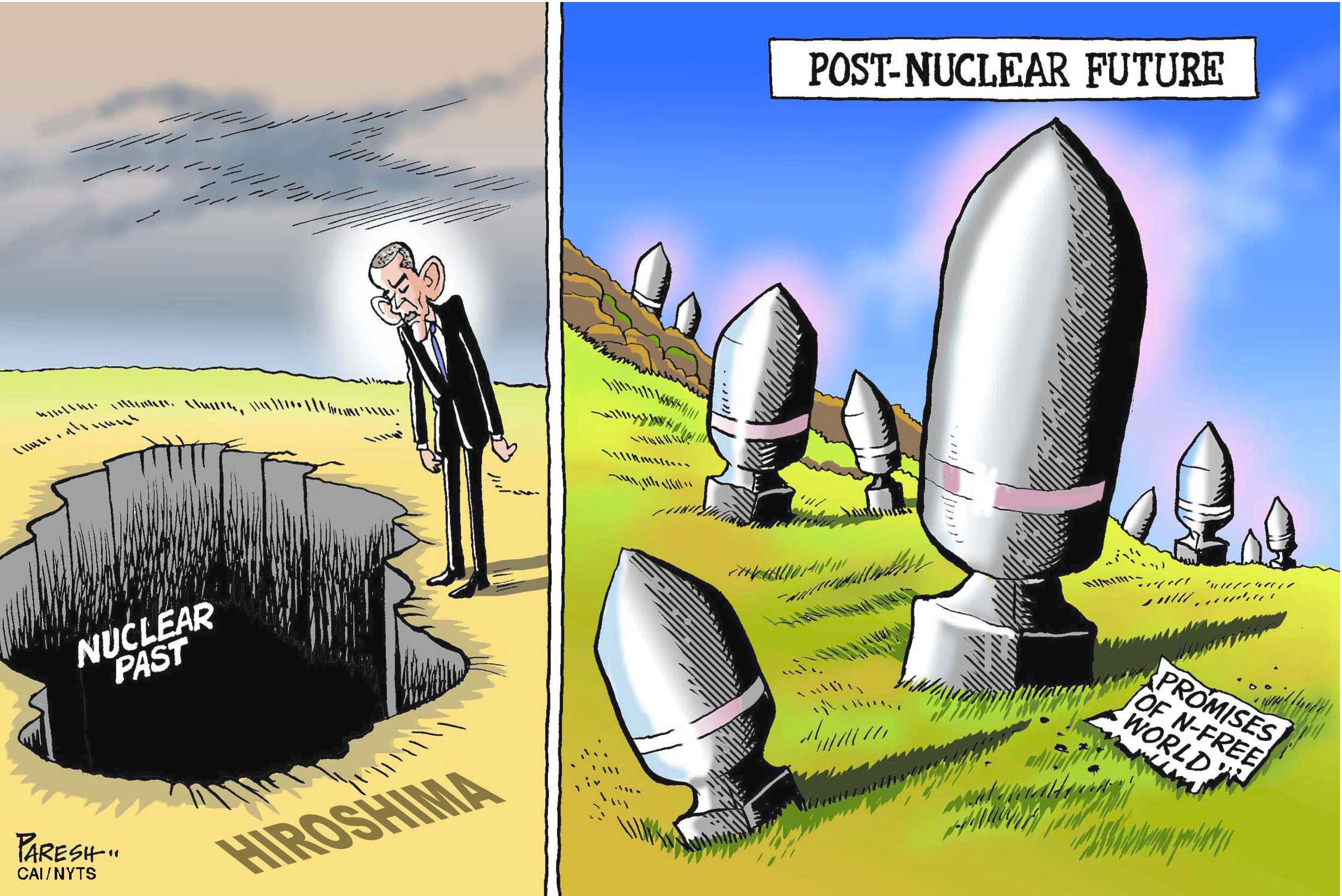Just as Hiroshima has become the symbol of the horrors of nuclear war and the essentialness of peace, the visit of the first sitting U.S. president to that city was laden with symbolism, including about the ironies of human action. As Barack Obama put it, when the United States carried out history's first nuclear attack by dropping a bomb, "a flash of light and a wall of fire destroyed a city and demonstrated that mankind possessed the means to destroy itself."
Two questions, however, remain unanswered to this day: Why did the U.S. carry out the twin atomic attacks when Japan appeared to be on the verge of unconditionally surrendering? And why was the second bomb dropped just three days after the first, before Japan had time to fully grasp the strategic implications of the first nuclear attack?
Months before the nuclear bombings, the defeat of Japan was a foregone conclusion. Japan's navy and air force had been destroyed and its economy devastated by a U.S. naval blockade and relentless American firebombing raids.



